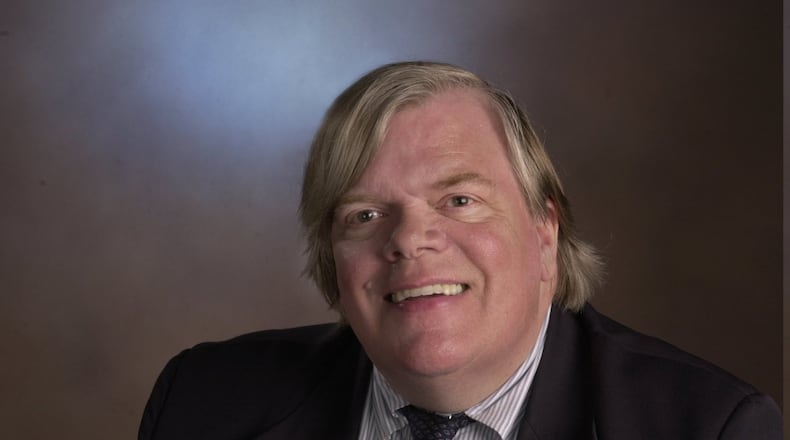Meanwhile, despite energetic campaigning by two statewide Democratic prospects – Amy Acton, of Bexley, for governor, and Bryan Hambley, of Warren County’s Loveland, for secretary of state – Ohio Democrats, like their Washington counterparts, seem to be dithering.
Acton, a physician who graduated from Northeast Ohio Medical University, was in Republican Gov. Mike DeWine’s Cabinet as state Health director. Hambley last year vigorously campaigned for passage of November’s Issue 1, an unsuccessful bid to end GOP gerrymandering of legislative and congressional districts. Hambley, too, is a physician, with a Tulane medical degree.
Besides Ramaswamy, Republicans’ nearly formalized ‘26 slate includes now-Auditor Keith Faber, of Celina, to succeed Yost as A.G.; now-Secretary of State Frank LaRose, of Upper Arlington, to succeed Faber as auditor; and now-Treasurer Robert Sprague, of Findlay, to succeed LaRose as secretary of state.
Three Republicans want Sprague’s current job: ex-Rep. Jay Edwards, of Athens County’s Nelsonville, once Ohio House budget chair; Sen. Kristina Roegner, of Hudson; and Lake County Treasurer Michael Zuren, of Painesville. Edwards’s campaign fund, carried over from his time in Ohio’s House, totaled $763,882 in January, dwarfing rivals’ kitties.
Democrats, though, seem stalled, thanks to the “to-be-or-not-to-be” acts staged by ex-U.S. Sen. Sherrod Brown, of Bexley, and ex-U.S. Rep. Tim Ryan, once of suburban Warren, now of Dublin, over whether to run for governor or senator (i.e., challenge Republican Sen. Jon Husted, of Upper Arlington) next year, or stay seated on Ohio’s sidelines
The last Democratic presidential nominee to carry Ohio was Barack Obama, in 2012. The last Democrat to win Ohio’s governorship was Ted Strickland, in 2006. And Statehouse Democrats seem completely at sea. GOP-rigged General Assembly districts mean Republicans have run Ohio’s Senate for 40 consecutive years (beginning in 1985, likely an Ohio record), and run Ohio’s House for 28 of the last 30 years.
Despite talk-show and online blather about what is holding back Democrats – “identity politics” and “liberalism” (whatever that word now means) – the party has two concrete problems in Ohio.
It can’t do much about one: The membership decline in CIO-originated unions, such as the United Steelworkers and the United Auto Workers, which for several generations rallied blue-collar Ohioans to vote to bolster their wallets and purses, not react to prejudices and biases like Donald Trump mobilizes.
Union membership dropped because jobs Ohioans held in unionized industries also dropped, partly due to automation, but also because Wall Street shipped manufacturing jobs overseas, relentlessly seeking cheap labor.
And economic whizzes sweet-talked presidents of both parties into thinking Americans should stop making things and instead shuffle paperwork in a FIRE economy – “finance, insurance and real estate.” Trouble is, juggling stocks, handing out credit cards, and peddling bonds, mortgages and insurance – that is, speculation – pays a lot less than making things that can be seen and touched.
Masking that reality – and hiding insiders getting rich from it – are campaigns that confine the conversation to race, gender and immigration. Till Democrats redefine the debate’s terms, they’ll be left where they are, begging for morsels in Columbus and Washington.
Thomas Suddes is a former legislative reporter with The Plain Dealer in Cleveland and writes from Ohio University. You can reach him at tsuddes@gmail.com.
About the Author
